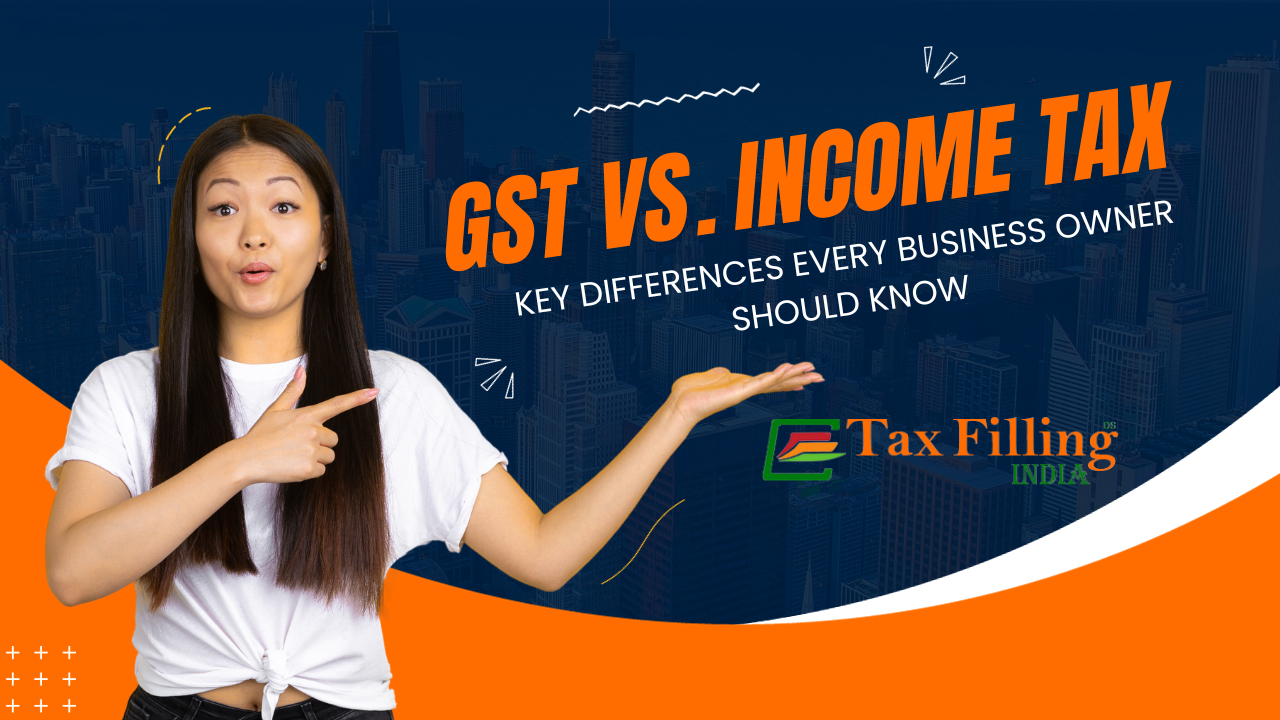GST vs. Income Tax: Key Differences Every Business Owner Should Know

For business owners in Hyderabad, understanding the nuances of taxation is vital to ensuring compliance and managing financial affairs efficiently. Two significant components of the tax landscape that businesses must navigate are GST (Goods and Services Tax) Registration and Income Tax. While both are essential for the functioning of a business, there are key differences that every business owner should be aware of. In this article, we will explore these distinctions to help you gain a better understanding.
GST Registration in Hyderabad is mandatory for businesses that meet certain turnover criteria. Here are some key aspects to consider:
1. Indirect Tax: GST is an indirect tax levied on the supply of goods and services. It replaced multiple indirect taxes such as VAT, service tax, central excise duty, and more. Under GST, businesses are required to charge and collect GST on their sales and remit it to the government.
2. Input Tax Credit: One of the significant advantages of GST is the input tax credit facility. It allows businesses to claim credit for the GST paid on their purchases and expenses. This ensures that the tax burden is passed on to the end consumer while enabling businesses to offset their tax liability.
3. Registration Threshold: Businesses with an annual aggregate turnover exceeding the prescribed threshold (currently INR 40 lakhs for most businesses) must register for GST. However, for businesses involved in inter-state supplies, e-commerce, or specific industries, the threshold is lower.
Income Tax
Income Tax is a direct tax levied on the income earned by individuals and businesses. Here are some important considerations:
1. Tax on Profit: Income tax is calculated on the net profit earned by businesses after deducting allowable expenses, depreciation, and other deductions. It is computed on the income earned during a financial year as per the prevailing tax slabs and rates.
2. Individual Tax Liability: Business owners, particularly those operating as sole proprietors or partners, are subject to income tax on the profits earned by their businesses. The profits, after considering allowable deductions, are added to their personal income and taxed accordingly.
3. Filing and Compliance: Businesses are required to file their income tax returns annually, disclosing their financial statements, profits, and deductions. Compliance with income tax laws is essential, and non-compliance can lead to penalties and legal repercussions.
Key Differences
Now that we understand the basics of GST and Income Tax, let's highlight the key differences:
1. Tax Base: GST is an indirect tax levied on the supply of goods and services, while income tax is a direct tax levied on the income earned by individuals and businesses.
2. Nature of Tax: GST is a transaction-based tax, where the tax liability is borne by the end consumer. Income tax, on the other hand, is a tax on the income earned by the business owner or individual.
3. Administrative Framework: GST is administered by the GST Council and implemented by the central and state governments. Income tax is administered by the Central Board of Direct Taxes (CBDT) and managed by the Income Tax Department.
4. Compliance Requirements: GST necessitates registration, periodic return filing, and payment of tax. Income tax requires filing annual returns and paying tax on the income earned.
Conclusion
Understanding the differences between GST and Income Tax is crucial for business owners in Hyderabad. While GST focuses on the taxation of goods and services, Income Tax targets the income earned by individuals and businesses. By comprehending these distinctions, you can ensure compliance with tax laws, optimize tax planning, and effectively manage your financial affairs. Consulting with tax experts or professionals can provide further guidance based on the specific requirements of your business, helping you navigate the complex taxation landscape with confidence.
Comments
Post a Comment